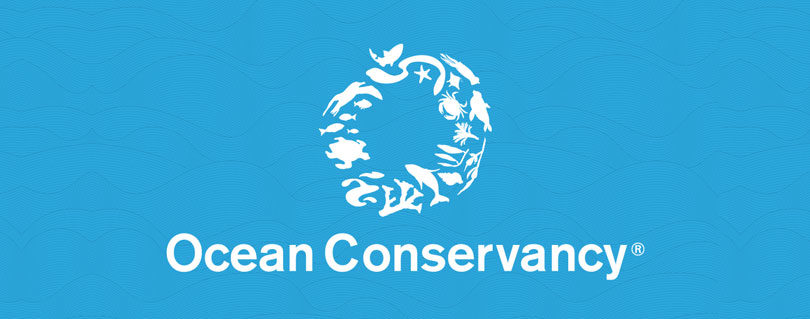No Silver Bullet Solution to Plastic Pollution
Published by Ocean Conservancy
This blog was written by Steph Borrelle, a Smith Postdoctoral Fellow in Conservation Biology and Chelsea Rochman, an Assistant Professor at the University of Toronto and Scientific Advisor to Ocean Conservancy.
Plastic pollution has become so pervasive that it is found in seafood, bottled water, beer, table salt and even the air. Hundreds of animals become entangled in discarded plastic debris and fishing gear. Ingestion of plastics by marine organisms can hurt or kill them, and may also be acting as a pathway for the transfer of harmful contaminants through food-webs, with biological implications for all life affected. The economic costs of plastic pollution affecting tourism, fisheries and shipping sectors are estimated to be at least $8 billion USD annually.
Currently, the problem of plastic pollution is being met with a suite of mitigation strategies, such as single-use bans, improving recycling capacity and waste management, substitution of products with “eco-friendly” alternatives and more. These actions are currently being implemented at the national level but the problem is so enormous that the international community has recognized that more action is needed, and urgently. Still, little work is being done to evaluate the impact of these many mitigation strategies being proposed and implemented, and how their impacts will vary in different economic and societal contexts. Without this understanding, we risk wasting vast quantities of money, time, and social and political capital in attempting to preserve the integrity of the world’s ecosystems.
We are the Plastic Pollution Emissions Group
That’s how the Plastic Pollution Emissions Group (PlasticPEG) came about. Based out of the National Socio-Environmental Synthesis Center (SESYNC), the work that we are doing will contribute to improving our understanding of the impacts of these reduction strategies, and inform governments of the most effective ways to contribute to improving the health of our oceans.
With a group of experts from across the world, including some from Ocean Conservancy, we aim to contribute to this knowledge gap by providing science-based evidence of the most effective strategies to reduce the leakage of plastic into our oceans. Our work will build on the inclusion of Plastic pollution in the Sustainable Development Goals (SDGs) and feed into an international agreement to establish a coordinated and effective strategy to drastically reduce plastic emissions into the environment.
How we will make a difference
We are conducting an evaluation of the impact of several plastic pollution management interventions. These include plastic-use reductions, broad-scale investments in waste management infrastructure, the implementation of a circular plastic economy and the cleanup of existing post-consumer plastic waste, including abandoned, lost or otherwise discarded fishing gear from the environment.
We are using ecological modeling techniques and an impact forecasting approach (sometimes referred to as ‘wedges’) to evaluate mitigation strategies at both the country and global level. This means that we can measure how much an action—such as single-use plastics bans—will have on reducing the leakage of plastic into the environment compared to if we did nothing (business as usual). Our analyses will support and inform countries to help them choose the best strategies to reduce plastic pollution, within the bounds of their resource capacity, social context and uniquely local sources of plastic debris.


If we are to achieve meaningful reductions of plastics in our oceans, we need to have a toolbox of effective solutions that can be implemented at multiple geographic scales, economies and levels of governance. The aim of the Plastic Pollution Emissions Group is to help find those solutions in a meaningful way.
For further information, please visit plasticpeg.org or follow us on Twitter @PlasticPEGroup.
Sign up for our emails!
The post No Silver Bullet Solution to Plastic Pollution appeared first on Ocean Conservancy.
Read the full article at: https://oceanconservancy.org/blog/2019/02/01/no-silver-bullet-solution-plastic-pollution/


